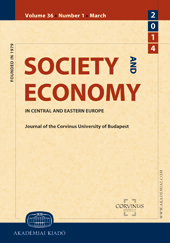Sufficiency economy, the King’s philosophy: an application of Buddhist economics to develop Thai local pharmaceutical industries for sustainable well-being
Sufficiency economy, the King’s philosophy: an application of Buddhist economics to develop Thai local pharmaceutical industries for sustainable well-being
Author(s): Suntharee ChaisumritchokeSubject(s): Economy, Theology and Religion, Health and medicine and law
Published by: Akadémiai Kiadó
Keywords: Thailand; sufficiency economy; Buddhist economics; pharmaceutical industries; well-being;
Summary/Abstract: This article is developed from a policy research carried out to study the impacts on local pharmaceutical industries in case that the Thai government decides to accept the free trade agreement (FTA) on pharmaceutical products proposed by the US government. Despite that the US-Thai FTA is unfair, the Thai government is likely to accept the agreement due to international political pressures and a globalized discourse claiming free trades. Therefore the research recommended applying “Sufficiency Economy”, the King’s Philosophy as a survival strategy for both local industries and Thai people. Sufficiency Economy, as a part of Buddhist Economics, comprises of three principles and two fundamental conditions. The principles are moderation, rationality and self-immunity to changes , while the two conditions include wisdom or abilities to understand things properly and morality or a moral commitment not to put burden on others. The article proposed that there are three levels of all kinds of development according to the application of the principle of moderation. If applied at the first level, it means that the local industries are supposed to build their own capabilities and put emphasis on internal potentials or resources rather than external ones. The second level concerns with the other companies’ survival. If applied, the local companies are supposed to support, not compete against each other. Then, it would lead to network building and increasing strength of local industry groups. However, the two levels may be perceived as concerning only on business benefits. The third level concerning with survival of all involved is therefore the most required approach, where the local companies would run business with a truthful devotion for real health needs of Thai people. That is, the third level is for the well-being of all people. However, this level is less likely to be implemented; most local industries still lack right understanding on sufferings of patients, and its relationship with their survival. As “suffering” was the central strategy proposed by the Buddha, the article proposes that the local industries should learn from patients’ sufferings. Sufferings from sickness are common burdens of life, it is morally wrong to increase any burdens to anyone, even ourselves. In case that the multinational pharmaceutical companies earn excess profits and put more burdens on poor patients, the local companies would contribute to minimise these sufferings. The approach concerning patients’ sufferings would help local companies gain more supports from Thai patients and it may call for more understanding from other people over the world. Sooner or later it may change the world a better place for everyone to live happily and healthy.
Journal: Society and Economy. In Central and Eastern Europe ǀ Journal of the Corvinus University of Budapest
- Issue Year: 29/2007
- Issue No: 2
- Page Range: 235-252
- Page Count: 18
- Language: English

